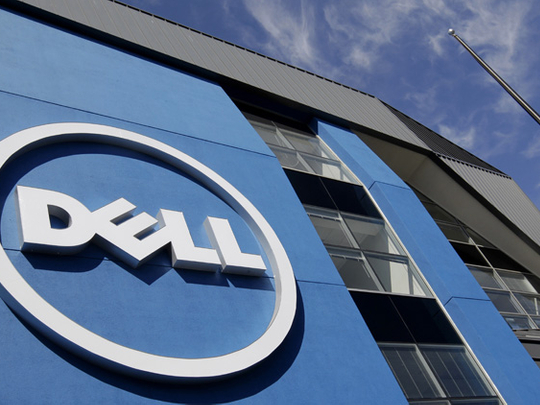
Bankers, lawyers and other advisers are set to enjoy a fee bonanza worth more than $400 million from working on the $24.4 billion agreement to take Dell private, financial industry executives estimate.
The bulk of the fees will come from arranging financing for the buyout. Typically, banks receive about 2.5 per cent of the amount raised for such deals in fees.
Assuming the transaction requires $15 billion or more in debt to be raised, executives estimate arrangers of the financing will earn fees of about $375 million. That figure could rise if more complex securitisations are used in the financing.
Merger and acquisition advisers are expected to receive $40 million to $50 million in fees, executives say. JPMorgan Chase and Evercore have been advising the “special committee” set up by the Dell board to vet the proposal. Goldman Sachs has been acting as a financial adviser to Dell.
Another $10 million-$20 million could go to law firms in the deal, including Debevoise & Plimpton, Hogan Lovells, Simpson Thatcher & Bartlett, and Wachtell, Lipton, Rosen & Katz.
The announcement on Tuesday gave few details of the transaction, but it said the PC maker’s founder, Michael Dell, who owns 15.7 per cent of the shares, would contribute $3.8 billion in equity, while Microsoft would provide $2 billion in debt.
People familiar with the deal said Dell’s investment vehicle, MSD Capital, would add $700 million in equity while Silver Lake Partners, a private equity group, would contribute about $1 billion in equity. Silver Lake is also expected to earn deal fees, the people said.
Banks involved in the financing include Bank of America, Merrill Lynch, Barclays, Credit Suisse and RBC Capital Markets. JPMorgan has not been involved in the financing because of its role as an adviser, but many of its competitors expect the bank eventually to play a role in this regard.
The financing is expected to include a bridge loan provided by the banks, which would eventually be refinanced with bonds. That adds to the risks for banks.
Some of the deal terms were not disclosed, such as whether advisers will be paid flat fees or be paid based on a successful outcome.
The deal comes at a time of feverish conditions in the debt markets. Companies that raised debt in December were already trying to refinance in January, paying only a slight penalty to do so.
It comes, too, at a time of declining leveraged buyout activity. In 2006, private equity deals totalled $410 billion while volume in 2012 was a mere $100 billion, with a corresponding decline in fees paid to banks and advisers.
Many private equity executives said they doubted the Dell deal would provide a template for other transactions, given Dell’s crucial role as the biggest equity investor in the move.
— Financial Times












